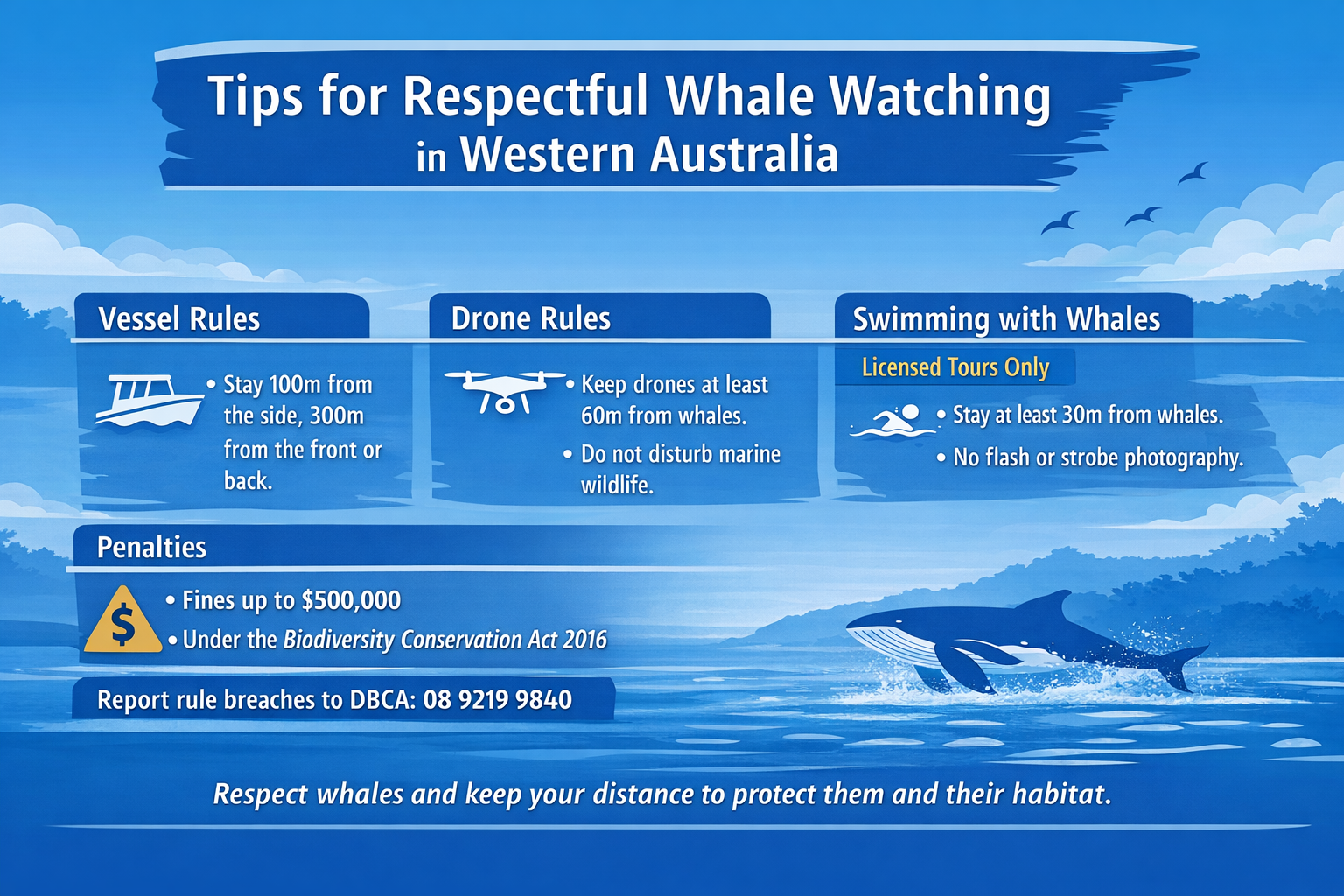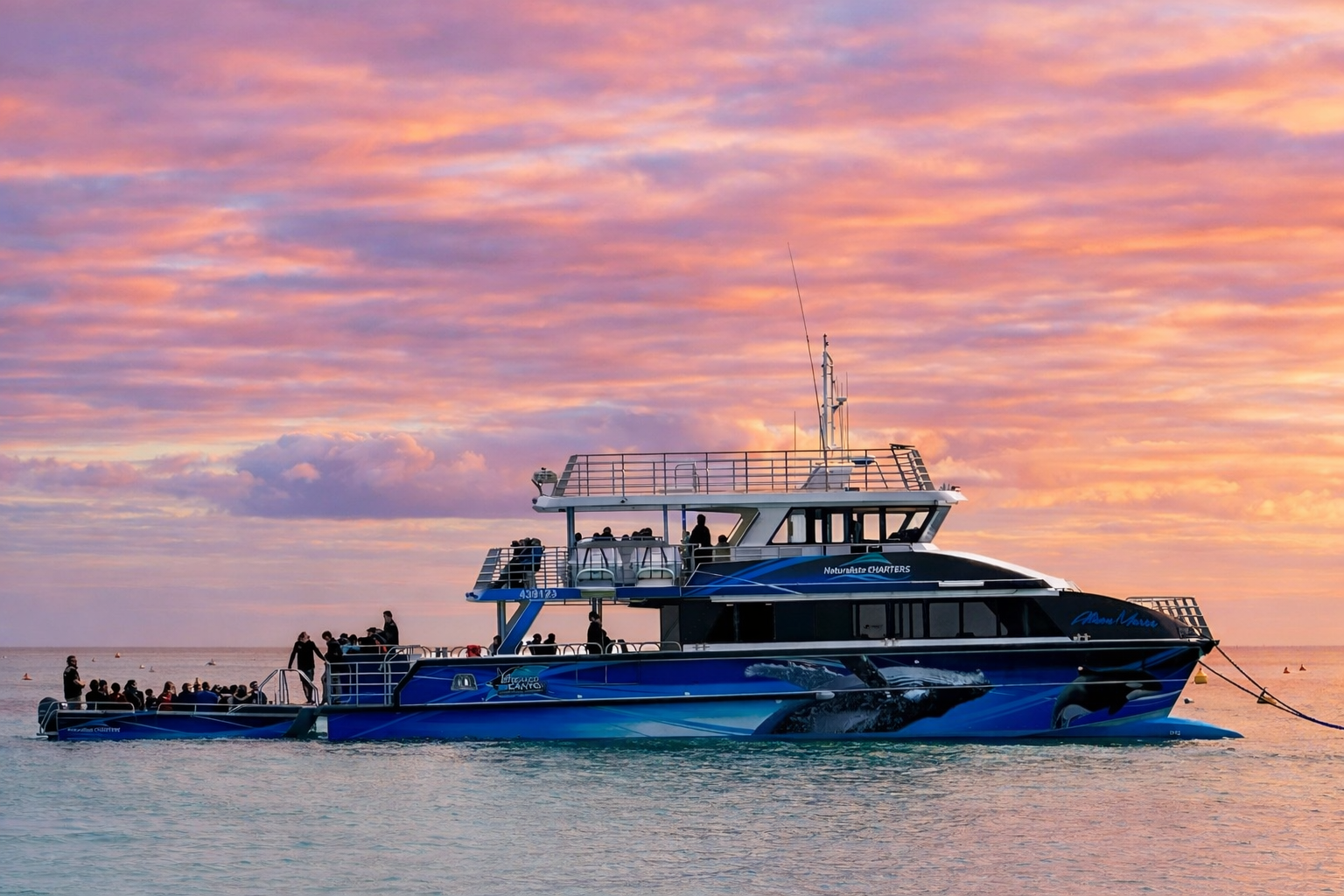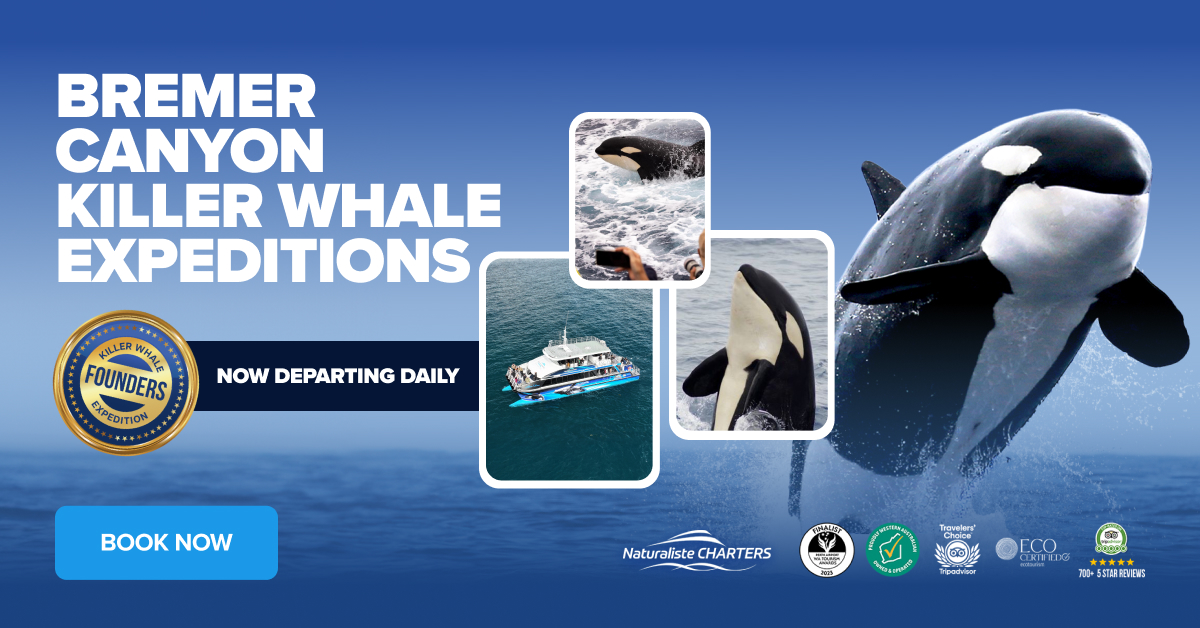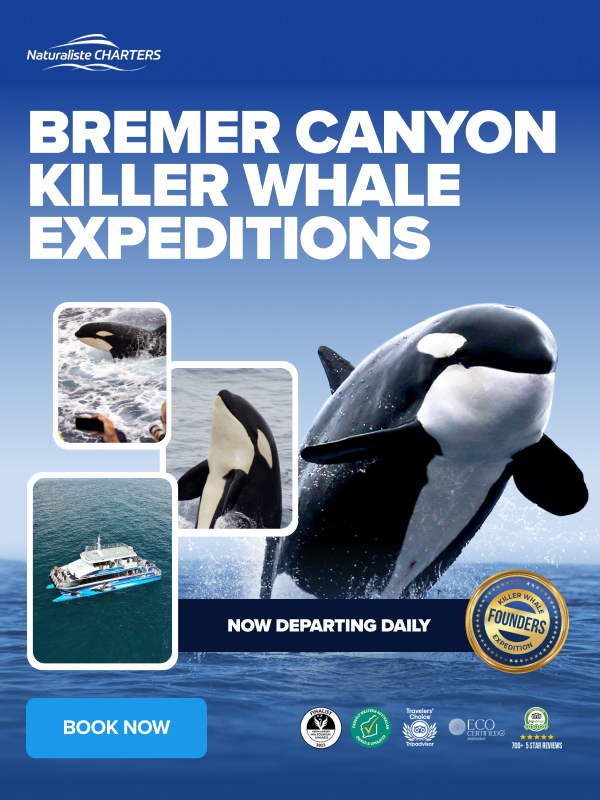10.02.2022
With the beginning of February we welcome in the Nyoongar season of Bunuru.
This is the hottest part of the year with hot easterly winds cooled in the afternoons by the sea breeze. Traditionally it was considered the best time for coastal living and fishing, we totally agree.
Due to Bremer Bays colder nature we do experience some species of gum flowering early. The Red flowering gum has already started to bloom and it is providing magical scenery to the town.
Out on the water the easterlies had blown yesterdays swell away and brought in shorter sets.
On our way out to the hotspot we ventured through a pod of Common Dolphins (Delphinus delphis) feeding on small bait fish! This has been a feature the past week or so with large schools of Pilchards (bait fish) schooling up near the surface. Common dolphins live up to their name as they are the most widespread cetacean (inc. all species of whale and dolphins) in the world. The Shearwaters and Gannets have a field day out here when the dolphins are snacking. They dive down into the bait ball hoping to pick up a snack of their own.
The Bremer Orca were everywhere and simultaneously no where. With close passes from Wonks and a cow and calf pair in the morning we left the area at the end of the day with a porpoising calf! They were predictably unpredictable and keeping us on the edge of our seats
. 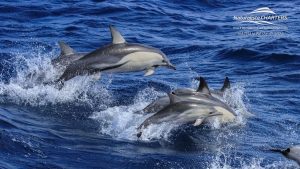
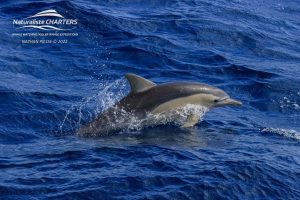
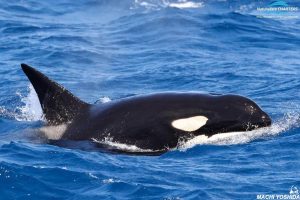
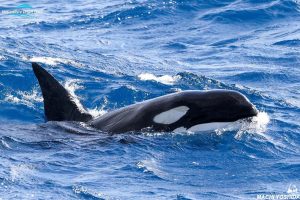
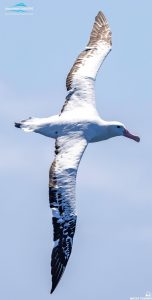
The pelagic birds were in large numbers today and this helped us to find the orca. They would swirl up with multiple Wandering Albatross’s joining in for the action. At one point there was almost a mid-air collision with two Wanderings!!! All different ages, they hung around our vessel and the orca for a large part of the day which isn’t a typical behaviour of theirs. With wings outstretched, they’d swoop in on a thermocline right past our vessel. Breath-taking!!!
On our journey home we were joined again by the Commons and a quick stop at Glasse Island rounded out the day. Glasse Island is now home to multiple Australian Sea Lion pups. They wait patiently for their mothers to come back ashore and haul out, so they can nurse on the warm rock.

